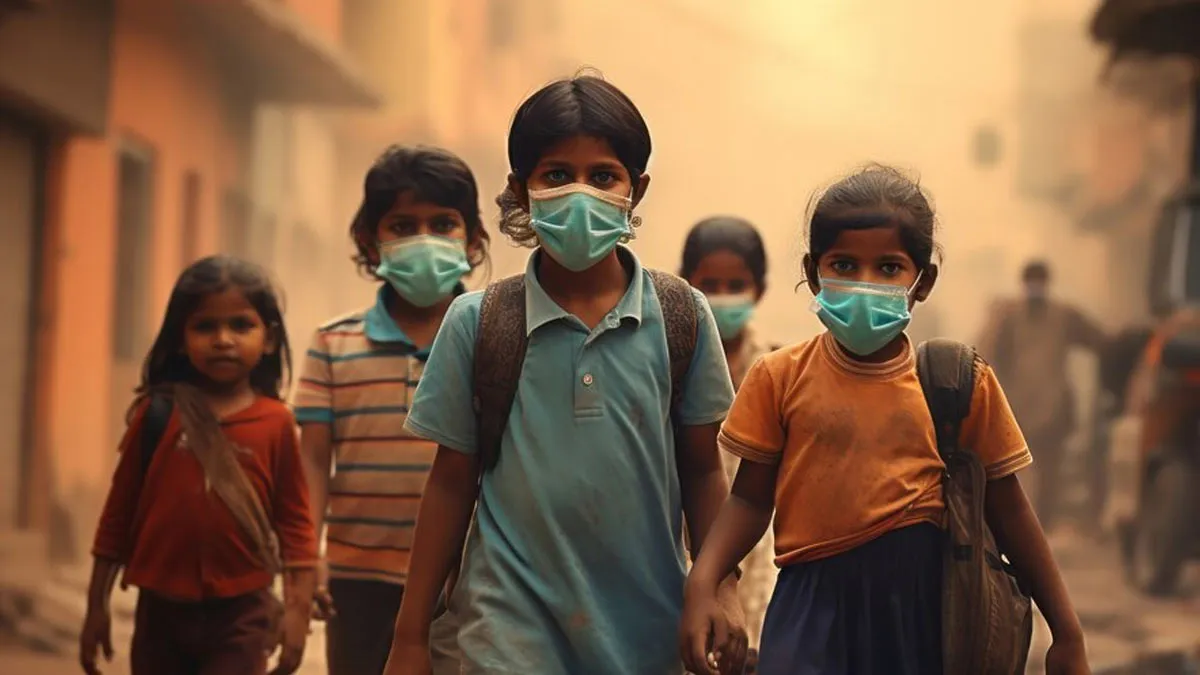
Due to alarming levels of air pollution and the deteriorating Air Quality Index (AQI), the Delhi government has ordered schools to remain closed. As per guidelines, classes will now be online, and the decision to revoke the order will be taken on November 23 only after assessing the situation. Classes on smartphones and no outdoor play mean restricted movement for children and this will naturally cause them more harm than good. Dr. Kushal Agrawal, HOD, Department of Neonatology and Paediatrics, KVR Hospital, Kashipur, shares more.
"The increasing levels of air pollution in India have led to frequent school closures, creating significant disruptions to children's everyday lives and development," says Dr. Agrawal.
He adds that while this is a necessary step given the bigger picture, this break from normal routine deprives "children of organized routines, face-to-face learning, and critical social contacts. Instead of participating in collaborative classroom activities, students are confined to their homes and frequently engage in excessive screen time."
Dr. Agrawal points out that this shift results in a more sedentary lifestyle and "problems such as digital eye strain and pain in the muscles and joints."
Lack of physical activity outdoors is another concerning side effect of this move. "Play and exercise are important for children's physical development, yet impure air pushes them to stay indoors. This inactivity raises the risk of obesity, affects cardiovascular health, and interferes with motor skill development," he highlights.
Don't Miss: Why As A Gen-Z I Want You To Talk About Mental Health With Your Kids
Dr. Agrawal says that not just kids, but youngsters, or those in the age range of 15–24, also get affected in this scenario. That's because they "rely on physical education and outdoor play to cope with stress and hyperactivity."
"The mental health consequences of these interruptions are equally disturbing," warns Dr. Agrawal, adding that limiting a child within the four walls "promotes emotions of loneliness and boredom, which can lead to anxiety, irritation, and even depression."
He underlines that children who aren't able to meet and engage with their peers and friends daily "miss out on important possibilities for emotional and social development. Furthermore, continual exposure to disturbing news about pollution heightens stress in older children."
As for pollution impacting a child's health, continuous exposure to such poor air quality undoubtedly "increases respiratory problems like asthma, allergies, and bronchitis. Over time, these conditions can impair academic performance by causing fatigue and reduced concentration," adds the doctor.
In the end, Dr. Kushal Agrawal says, "The combined effects of school closures, reduced physical activity, and polluted environments are shaping a generation grappling with physical and emotional challenges, underscoring the urgent need for systemic change."
Don't Miss: Delhi's Air Quality Remains 'Severe': 5 Yoga Asanas To Boost Lung Health, As Per Expert
If you liked this story, please share it. For more such articles, stay tuned to HerZindagi.
Our aim is to provide accurate, safe and expert verified information through our articles and social media handles. The remedies, advice and tips mentioned here are for general information only. Please consult your expert before trying any kind of health, beauty, life hacks or astrology related tips. For any feedback or complaint, contact us at compliant_gro@jagrannewmedia.com.